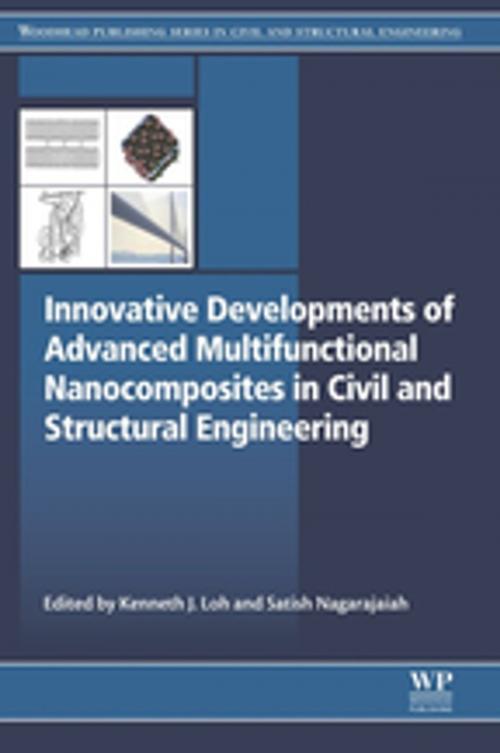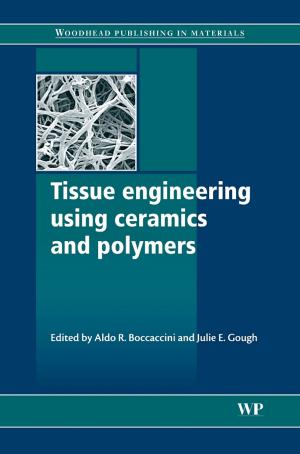Innovative Developments of Advanced Multifunctional Nanocomposites in Civil and Structural Engineering
Nonfiction, Science & Nature, Technology, Material Science, Construction & Construction Trades| Author: | ISBN: | 9781782423447 | |
| Publisher: | Elsevier Science | Publication: | February 3, 2016 |
| Imprint: | Woodhead Publishing | Language: | English |
| Author: | |
| ISBN: | 9781782423447 |
| Publisher: | Elsevier Science |
| Publication: | February 3, 2016 |
| Imprint: | Woodhead Publishing |
| Language: | English |
Innovative Developments of Advanced Multifunctional Nanocomposites in Civil and Structural Engineering focuses on nanotechnology, the innovation and control of materials at 100 nm or smaller length scales, and how they have revolutionized almost all of the various disciplines of science and engineering study.
In particular, advances in synthesizing, imaging, and manipulating materials at the nano-scale have provided engineers with a broader array of materials and tools for creating high-performance devices. Nanomaterials possess drastically different properties than those of their bulk counterparts mainly because of their high surface-to-mass ratios and high surface energies/reactivity. For instance, carbon nanotubes have been shown to possess impressive mechanical strength, stiffness, and electrical conductivity superior to that of bulk carbon.
Whilst nanotechnology has become deeply rooted in electrical, chemical, and materials engineering disciplines, its proliferation into civil engineering did not begin until fairly recently. This book covers that proliferation and the main challenges associated with the integration of nanomaterials and nano-scale design principles into civil and structural engineering.
- Examines nanotechnology and its application to not only structural engineering, but also transportation, new infrastructure materials, and the applications of nanotechnology to existing structural systems
- Focuses on how nanomaterials can provide enhanced sensing capabilities and mechanical reinforcement of the original structural material
- Analyzes experimental and computational work carried out by world-renowned researchers
Innovative Developments of Advanced Multifunctional Nanocomposites in Civil and Structural Engineering focuses on nanotechnology, the innovation and control of materials at 100 nm or smaller length scales, and how they have revolutionized almost all of the various disciplines of science and engineering study.
In particular, advances in synthesizing, imaging, and manipulating materials at the nano-scale have provided engineers with a broader array of materials and tools for creating high-performance devices. Nanomaterials possess drastically different properties than those of their bulk counterparts mainly because of their high surface-to-mass ratios and high surface energies/reactivity. For instance, carbon nanotubes have been shown to possess impressive mechanical strength, stiffness, and electrical conductivity superior to that of bulk carbon.
Whilst nanotechnology has become deeply rooted in electrical, chemical, and materials engineering disciplines, its proliferation into civil engineering did not begin until fairly recently. This book covers that proliferation and the main challenges associated with the integration of nanomaterials and nano-scale design principles into civil and structural engineering.
- Examines nanotechnology and its application to not only structural engineering, but also transportation, new infrastructure materials, and the applications of nanotechnology to existing structural systems
- Focuses on how nanomaterials can provide enhanced sensing capabilities and mechanical reinforcement of the original structural material
- Analyzes experimental and computational work carried out by world-renowned researchers















